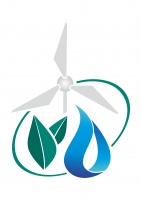Set of hydro-reclamation measures
| Title | Set of hydro-reclamation measures |
|---|---|
| Category of tools | Set of hydro-reclamation measures |
| Field of application |
|
| Usability of practice for adaptation to climate change | Low |
| Implemented by | Ministry of Nature Protection of Turkmenistan and German Technical Cooperation Agency (GIZ) |
| Used by |
Country: Turkmenistan Province: Mary Region District: Sakarçäge District Settlement: Zakhmet Daikhan Farm |
| Local specifics |
Sakar-Chaga District (area of 53,000 ha; population of 132,000 people) is located in the northwestern part of Mary Region in the Murgab River delta. The majority of local residents live in the oasis hosting 80% of settlements. |
| Practice usage period |
Start date: 01.01.2009 End date: 31.12.2010 |
| Problem solved through this practice |
Land salination represents the main challenge in the area due to improper irrigation technology and lack of drainage, in their turn leading to extremely low productivity. With time, the existing irrigation management system resulted in irrational use of water and land. While water distribution rates were calculated in a centralized manner depending on specific crops, in practice water supply monitoring is extremely poor – water supply (canals) infrastructure is inconsistent with farmers’ needs leading to excessive and, vice versa, insufficient watering of different sites. In addition, there exists an informal water payment system leading to the advantageous position of certain users. |
| Tools used in the practice |
Set of hydro-reclamation measures: preventive land forming (leveling), composting, monitoring of ground water bedding and mineralization, decentralized water management planning, capacity building, etc. |
| Description of the practice and its results |
Actions: A series of measures were executed to prevent land degradation and improve land reclamation condition, including introduction of high-performance drainage systems and reclamation technologies, construction of a new collector and cleaning of the existing one, construction of 9 water-regulating and 2 water-measuring facilities. Results:
|
| Lessons learnt and recommendations made |
Lessons learnt:
Recommendations: It is necessary to focus on strengthening the role of local associations in rendering irrigation services and managing the canal’s water level. Local water users will be rendered an opportunity to design effective irrigation water management schemes. The experience of decentralized water planning and management accumulated by water tenants will be documented and distributed as a part of knowledge-management (capacity-building) strategy. It is necessary to closely cooperate with the newly established Agriculture Advisory Service working on sustainable land and water management, as well as to disseminate corresponding practices in other areas. |
| Source of practice |
Domestic tools (outcomes of research by domestic R&D organizations) |
| Brief information on the project |
Project title: Local-level capacity building and investment for sustainable management of land resources. Project duration: 2009-2010. Project goal and objectives: overcoming barriers to higher efficiency and performance of water supply systems in climate change induced drought conditions. Project beneficiaries: Zakhmet Daikhan Farm (approximately 300 daikhan households). Project implementer: Ministry of Nature Protection of Turkmenistan and German Technical Cooperation Agency (GIZ). |
| Funding source | UNDP and Global Environmental Facility |
| Information sources | |
| Form submission date | 17.04.2018 |
| Print Compare with other practice |




